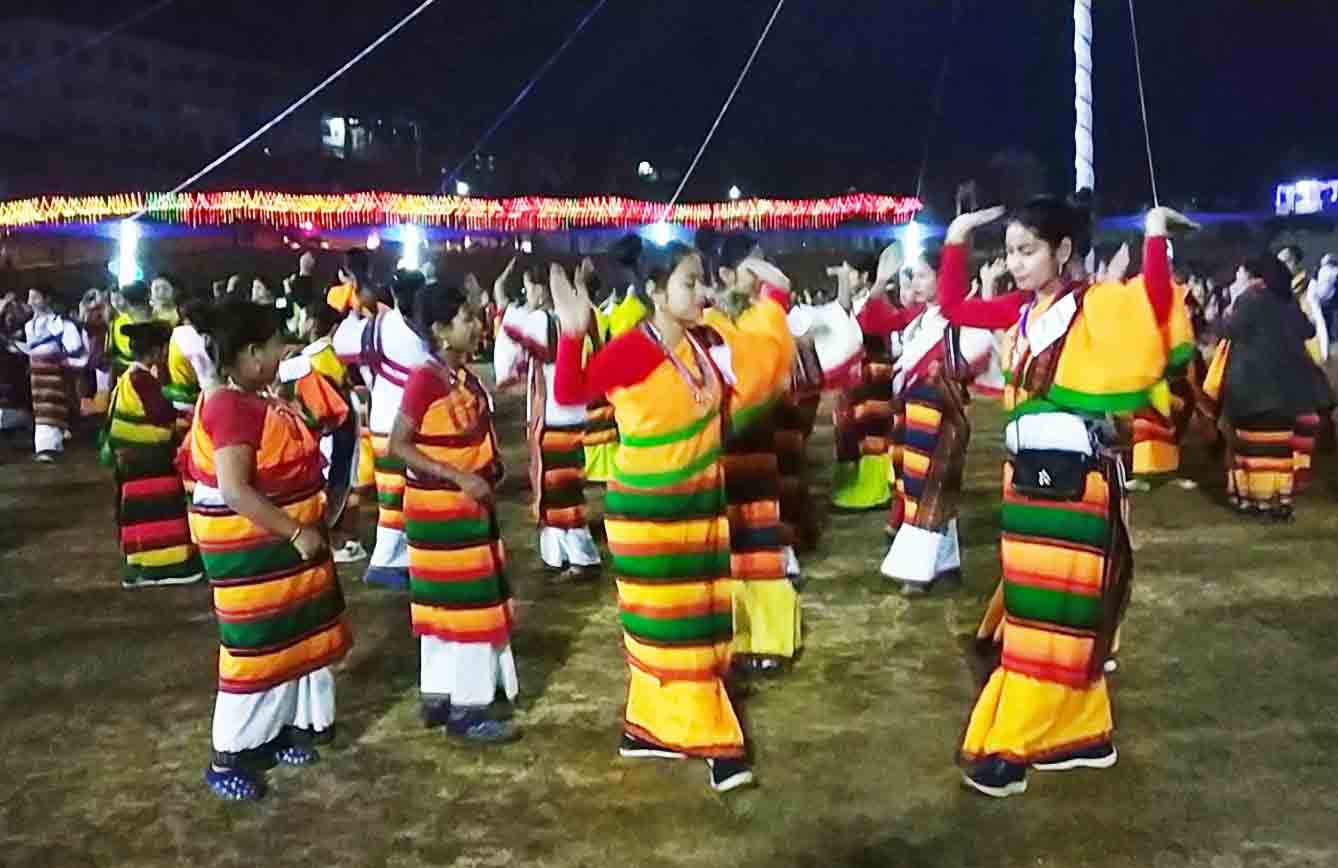By Anup Biswas
Haflong :Bishu or Busu, one of the major festivals of the Dimasas is being celebrated throughout the district of Dima Hasao with great enthusiasm and traditional fervour from last week.
 This year ‘Hangsaomanouba’, the biggest form of Busu is being celebrated at places like Hamri Baigo (N Dukhaling) in Maibang west in February.
This year ‘Hangsaomanouba’, the biggest form of Busu is being celebrated at places like Hamri Baigo (N Dukhaling) in Maibang west in February.
On January 31, the Greater Haflong central Busu was organized at N L Daulagupu Sports Complex Haflong.
Busu is one of most important and biggest festivals celebrated by the Dimasa people. ‘Busu’ means the festival of eating newly grown autumnal rice, and so it can be considered as the harvesting festival too, which mirrors the rich culture and tradition of the Dimasa community.
On Bususataiba, the first day of the Busu, meat is distributed to every household. On Busuma, the second day, the boys with older men sing Bagaoba while welcoming the guests. The Khunang, village headman, sings a devotional song, seeking blessings on behalf of the villagers from Lord Siva, so that the villagers can spend the festive days with joy and merry-making. Competition of Traditional games and sports like ‘Douyong siklaiba’, ‘rimin nilaiba’, ‘harang baiba’ etc are also organised during the Busu.
The boys and girls perform dances and sing songs during these days. They beat drums called Khram, play pipes called murri, flutes called supin and Khram dubung. Playing of murri should start from the beginning of Busu and continue till the last day of the festival. Judima (rice beer) pork, chicken and fish are enjoyed during the Busu. The Busu symbolizes the unity and coexistence among the people of Dima Hasao.
Dimasa people observe Busu by arranging feasts and various cultural functions. Busu is celebrated in three different ways, namely Jidab, Surem, and Hangsaomanouba. Jidab is the simplest form of Busu. Surem is a celebration which lasts for three nights. Surem Busu is celebrated frequently whereas Hangsaomanoba is celebrated occasionally as it requires large amount of money and manpower. Generally, the expenses of the Busu are borne by the villagers. There is a custom in Dimasa community where the people collectively help others in cultivation without taking wages for the work. But they collect rice or paddy after harvesting to celebrate Busu.
When the community decides to celebrate Hangsaomaoba, a separate plot of land is cultivated and from which the expenses for the celebration are taken. The Surem Busu lasts for three days while the Hangsaomaoba lasts for seven days. Both should end either on Tuesday or Saturday as these days are considered to be auspicious by the Dimasa Community.

